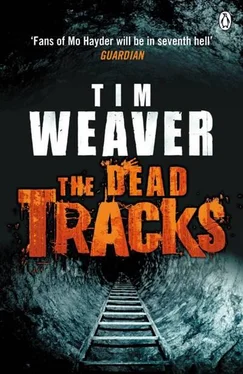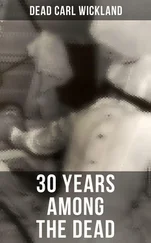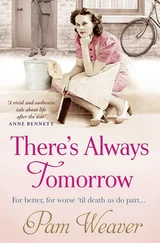Then, midway through, I stopped.
The second from last tape was in a bright red case, different from the others, and had no printing on it at all. I pulled the cassette out. Written across the label in the middle was a message in black marker pen.
It said , Help me .
We didn't speak as I switched on the VCR, slid the tape in and turned the TV on. Blackness. And then, seconds later, the set was filled with a shot of Markham.
He had tears in his eyes.
His brown hair was shorter than in the photo I'd taken from the youth club, and he'd lost the horn-rimmed glasses. Dark eyes like chips of wood gazed out at us; stubble bristled as his hand traced the line of his jaw. He looked in good shape and was dressed well too: a name- brand polo shirt and a pair of jeans. No shoes.
He sniffed and then took in a long breath. His eyes drifted off camera, before coming back again. It was recorded during the day, in the middle of the living room. In the background we could see the kitchen, and a little of the stairs. He ran a hand through his hair, as if he didn't know where to start.
Then he cleared his throat.
'My name is Daniel Markham,' he said, his voice wavering, his eyes watering, his face etched with unease. 'And this is my confession.'
The Doctor
Eleven months ago
Daniel Markham opened the door to his office and stepped inside. It was too warm. The hospital was always either stiflingly hot or freezing cold. Never in between. It was the beginning of November, and the weather had been unseasonably mild for a week, but still the central heating in his part of the building hadn't been adjusted properly. He'd put in two complaints, neither of which had been met with any kind of response. It was the NHS in full working order.
He hung up his coat and went to the windows, opening them as far as they would go. A faint breeze wafted in. Sitting at his desk, he booted up his computer and started going through his unopened mail. At the top of his in- tray was an appointment diary, which his secretary filled in for him at the beginning of each week. Without her, he would be lost. He remembered the faces of his patients, but not always their names and certainly not the times they were expected. The only appointment he did remember was the one at Barton Hill Youth Club on Monday afternoons, where — as part of a drive by the hospital to get consultants out into the field as volunteers - he spent five hours with the parents of kids suffering from cerebral palsy, helping where he could.
Initially, he'd seen the volunteer work as wasted hours. In fact, when the email had first gone round, he'd thought it was a joke. In a hospital system that could barely cope with the ratio of patients to staff as it was, an afternoon field trip seemed like an idea that would only ensure fewer people were seen and more complaints rolled in. But the hospital trust were determined to carry through the commitment they'd made to the community in an expensive PR campaign the previous year, and - after some initial scepticism - Markham had grown to love the time he got to spend at the club. The parents of the kids were so different from the patients he had at the hospital; so positive, despite the heartache they'd had to endure. His patients tended to be the opposite: most of them were antagonistic and cynical and only looked for ways to head further down the spiral.
Throwing away half the mail he'd opened up, he pulled his appointment diary down from the in-tray and turned to 3 November. His days were divided up into hour-long sessions, and the day was full, from 8 a.m. through to i p.m., and z p.m. through to 6 p.m. First up was a name he definitely didn't recognize: Sykes. Probably a new patient. He turned to his computer, logged into his e-diary and clicked on the entry for 8 a.m. marked 'Sykes'. His medical history came up. Broken arm at nine. Fractured wrist at seventeen. Nondescript doctor's appointments throughout the course of the rest of his life until a fortnight ago when he'd returned five times over the course of a ten-day period complaining of insomnia, anxiety attacks, severe chest pains and problems concentrating at work. Markham scrolled down and clicked on the GP's referral letter. The patient had been given a medical on his last visit to the surgery, and nothing had been found. Physically, he was fine. Markham's two-second diagnosis was depression.
On the desk, his phone started ringing.
He picked up. 'Hello?'
'Mr Sykes is here for you,' his secretary said.
Markham looked at the clock on the wall. It was just before eight.
'Okay. Send him in.'
He moved across to where two sofas were sitting in an L-shape in the corner of the room. They faced a tilting, high-backed leather chair. In between was a coffee table with a series of heavy, and largely tedious, books he'd picked up from a market for a tenner. He wanted the room to seem less like an office in a sprawling, faceless hospital and more like a place to feel at home.
Two knocks at the door.
'Come in.'
Mr Sykes entered. He was in his late thirties and six foot, but looked much shorter. He was stooped, almost curved from the middle of his spine. Brown hair, dark eyes, a couple of days of stubble and a tired expression. Markham studied him: some of it was the lack of sleep, but not all. He carried a kind of sadness with him. 'Mr Sykes?'
He nodded. 'Dr Markham.'
'Please,' Markham said, pointing to the sofas. 'Take a seat.'
Sykes nodded his thanks, and looked around the office, sitting down on the nearest sofa. He perched himself on the edge, legs together at the knees, looking nervous.
'Can I get you something to drink?'
'No, I'm fine, thank you,' Sykes replied, glancing briefly at Markham and away again. He had the look many had on entering the office for the first time: a mix of expectation and terror.
Markham sat in the leather chair. 'So what brings you here today?'
Sykes nodded. Hesitated. 'I, uh…' He stopped, looked around the office again. Drummed his fingers on his knees. 'I haven't been feeling right.'
Markham nodded. 'In what way?'
'I don't think I've slept for about six weeks now. Not properly.'
'Has something been bothering you?'
Sykes looked up. 'Yes.'
'What?'
'Lots of things. Lots of different things. I'm worrying so much I'm having anxiety attacks — these great big waves of panic rushing through me.'
'What's been worrying you?'
'I get these chest pains,' Sykes said, his eyes fixed on a space behind Markham. Almost no eye contact so far. 'Physically, they can't find anything wrong, but I can feel something eating away at me from the inside.'
Markham paused. 'Okay. Let's take a couple of steps back. What is it you do?'
Sykes looked up briefly. 'I kind of freelance.'
'Doing what?'
'Dealing with people.'
'You're a manager?'
'No. I observe and then I act.'
Markham frowned. 'Why don't you elaborate?'
'I can't concentrate on my work, on anything in my life. I sit there all day, looking at my computer screen, and all I can see is her face looking back at me.'
'Who are we talking about here?'
Sykes didn't reply. He was staring down into his lap, his fingers on his knees, one of his legs vibrating gently, his shoe tap-tapping against the carpet.
'Mr Sykes?'
No response. Markham leaned forward.
'Who is it you can see looking back?'
Nothing.
'Mr Sykes? Whose face can you see?'
A second later, like a light cutting out, Sykes went completely still. He continued looking down into his lap, the fingers of each hand resting on either knee.
'Mr Sykes?' Markham leaned forward even further, trying to get an angle where he could see Sykes's face more clearly. Who can you see?'
Читать дальше












